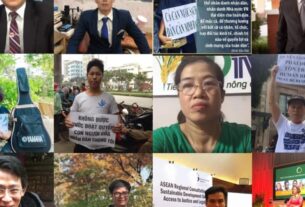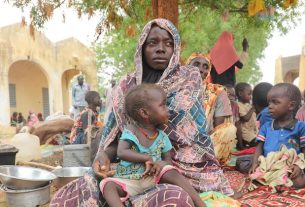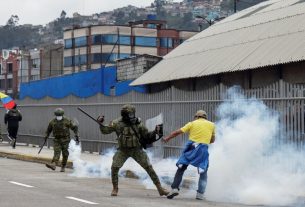Children who had to flee conflict often suffer from mental health issues due to the distressing experiences they had gone through. Caring for their mental health is as important as for their physical wellbeing. With EU humanitarian funding, our partner Save the Children provides psychosocial support and education to over 150,000 vulnerable children in the central Sahel.
Amatigue is one of the children that receive psychological support from an EU-funded project run by Save the Children in central Sahel, where violence has displaced many families.
© Save the Children, 2023.
In 2021, 10-year-old Amatigue* and his family were forced to leave their home after their village in central Mali was attacked by armed groups. They escaped to the outskirts of Sevaré, a town that has become a temporary home for them and many other displaced families.
Central Sahel has experienced record levels of forced displacement due to a crisis with multiple factors, such as conflict, hunger and climate change.
Over 2.7 million people are displaced across the region. Furthermore, up to 10 million children of school age are not receiving formal education, and almost 9,000 schools had to close in recent years.
Near the town of Sevaré, Save the Children, with local partners, is offering children like Amatigue and his siblings the chance to go to school, but also protection and psychological support.
There, they can learn, make friends and have a more normalised daily routine. Crucially, they also receive mental health treatment, if necessary. The project also aims at strengthening the resilience within local communities.
Help to recover from traumatic experiences
Many kids supported by Save the Children’s programme have difficulties coping with the distressing events they have witnessed.
Some have seen their friends and families die, their homes destroyed.
This deeply impacts children, and some show signs of mental health issues, such as anxiety and psychological instability. If left untreated, such problems can have a life-long impact.
In Amatigue’s case, upon his arrival, the programme team assessed his needs and detected signs pointing the need of psychosocial support.
After his family had to flee, a serious speaking impairment that he suffered since an early age only got worse. To tackle his condition, the team put together a support plan tailored to his needs.
Amatigue suffered from a speaking impairment that got worse after his family’s displacement. Through art and crafts, he explored alternative ways of self-expression.
© Save the Children, 2023.
The support to Amatigue included home visits to provide guidance to his family on how to stimulate his development. In the classroom, he joined social activities with other students of the same age, and he could explore alternative ways of self-expression, such as art and crafts.
The results have been very promising. For the first time, Amatigue started to communicate through speech, drawing, and painting. His self-esteem increased and he got better results in school.
Amatigue’s example clearly shows the importance of psychological help for children in humanitarian crises, combined with education and protection.
As the European Mental Health Week reminds us of every year, mental well-being is essential for people and societies.
Save the Children is running this EU-funded Pilot Programmatic Partnership between 2020 and 2023, with a total EU budget of €12.1 million.
Thanks to the project’s support, Amatigue and other children can better cope with the distressing events they have gone through, crucially improving their mental wellbeing.
© Save the Children, 2023.
*The name has been changed following protection and data policies standards
Story by Ali THIENOU/, Advocacy & Communications Officer / Save the Children.
Publication date: 02/06/2023


